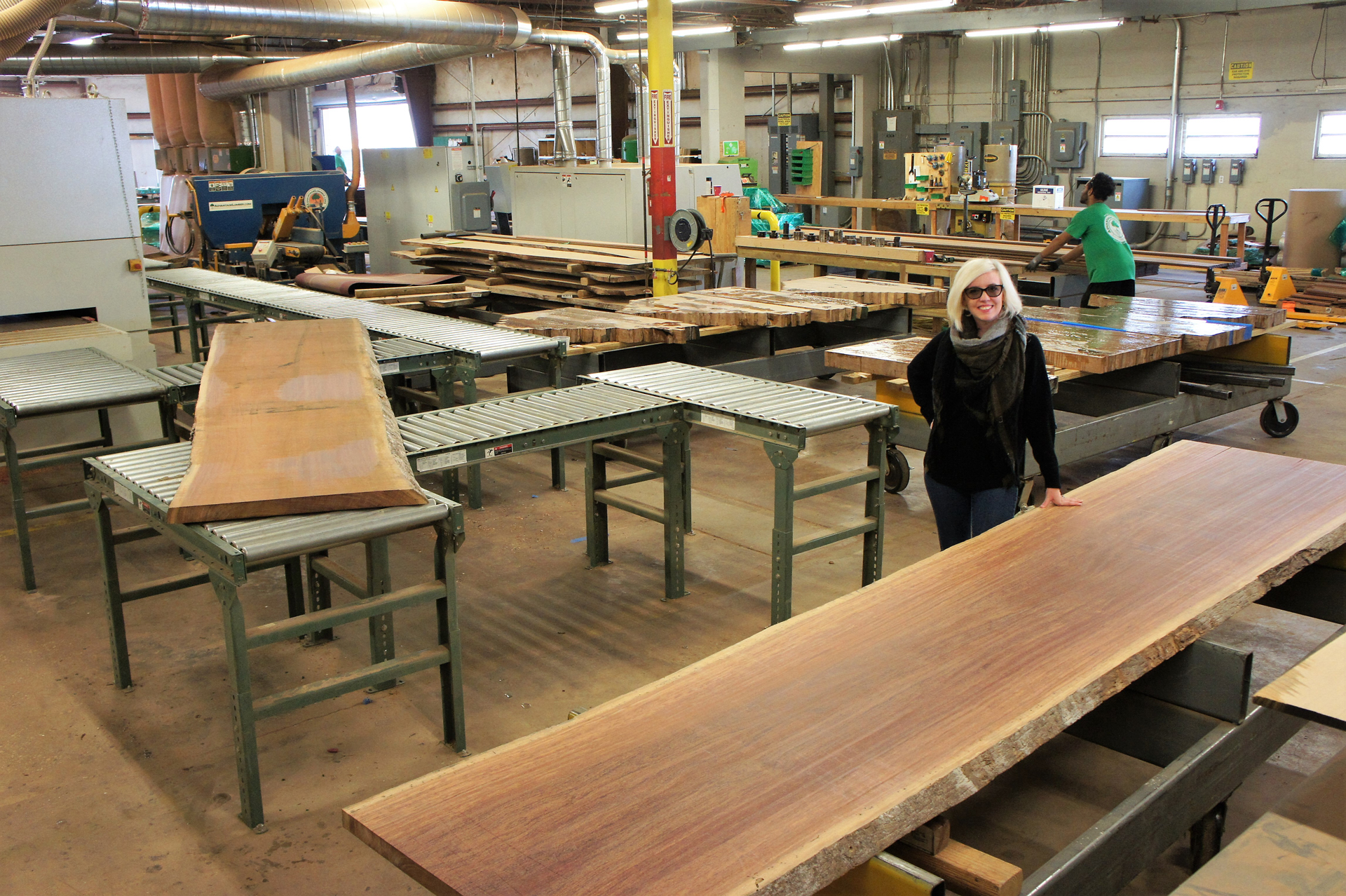
[php_everywhere]
Cumaru Wood Slabs
Cumaru has been an emerging wood out of Brazil for a while in lieu of Ipe for decking. Cumaru in slab form may even be more appealing than Ipe in slab form. It is nearly as hard and actually more dense. Even though as decking it doesn’t quite live up to what Ipe is, in slab form it shines. As with many other species, the properties of Cumaru change a little in slab form. Very wide heartwood with a very distinct, very thin line of sapwood running along the sides really show off the beauty of Cumaru. The ribboning of the grain really shows up in all the heartwood. Along with the beauty comes a joy to work with. There is very little checking or cracking but end sealing is still recommended if it is not going to be getting a finish quickly. Cross cutting and ripping is achieved with relative ease. It machines in a planer well and can be sanded to a polish like finish. This truly is one of the best woods for a slab, whether it be an inside coffee table or an outside gathering table. Being able to offer a Cumaru table top to match the siding, decking, or flooring is an advantage most companies cannot offer. Only the highest quality logs that are sustainably harvested are selected to stay in slab form. The reason for this is two reasons. Slabs have the highest yield of any form and using the most wood is imperative to sustainable harvest A slab that comes from a lesser quality log will be slightly less stable. Not many companies have thought of leaving Cumaru in slab form because of its high value as decking. We believe that offering some of our Cumaru in the highest possible yield is imperative to keep our wholesalers competitive in an ever changing wood world. With our experience with Cumaru as slabs, you can always be assured that we will supply you the very best. Give us a call or email us to see what we have available or what we are expecting to be available shortly.
Common Name: |
Almendrillo, Tonka, and Tonquin Bean |
Botanical Name: |
Dipteryx Odorata spp. |
Indigenous to: |
The Northern regions of South America |
Modulus of Rupture: |
25,390 lbf/in2 |
Shrinkage: |
Radial: 5.3%, Tangential: 7.7%, Volumetric: 12.6%, T/R Ratio: 1.5 |
How is it dried: |
Info coming soon |
Is it dried quickly: |
No Drying must be done with care and slowly. Risks of casehardening for thick boards. |
Stability: |
Moderately Stable to Stable |
Exterior Wood Recommendation: |
class 4 – in ground or fresh water contact
Against dry wood borer attacks: does not require any preservative treatment |
Fastening Method: |
Nailing / screwing: Good but must be pre-drilles Gluing: Poor |
Ecosystem impact: |
Info coming soon |
Toxicity and allergic reactions: |
Info coming soon |
Odor: |
Unpleasant odor when green. |
Product we manufacture using this species: |
Info coming soon |
Other common uses: |
Sleepers Bridges (parts in contact with water or ground) Bridges (parts not in contact with water or ground) Hydraulic works (fresh water) Industrial or heavy flooring Wood frame house Poles Stakes Ship building (planking and deck) Cooperage Heavy carpentry Sliced veneer Tool handles (resilient woods) Turned goods Hydraulic works (seawater) Note: Slicing: only for decorative veneer. |
Susceptibility to |
|
Dry Wood borers: |
durable – sapwood demarcated (risk limited to sapwood) |
Fungi: |
Very Durable |
Termites: |
class D – durable |
Treatability: |
class 4 – not permeable |
Janka Hardness: |
|
More Product Information